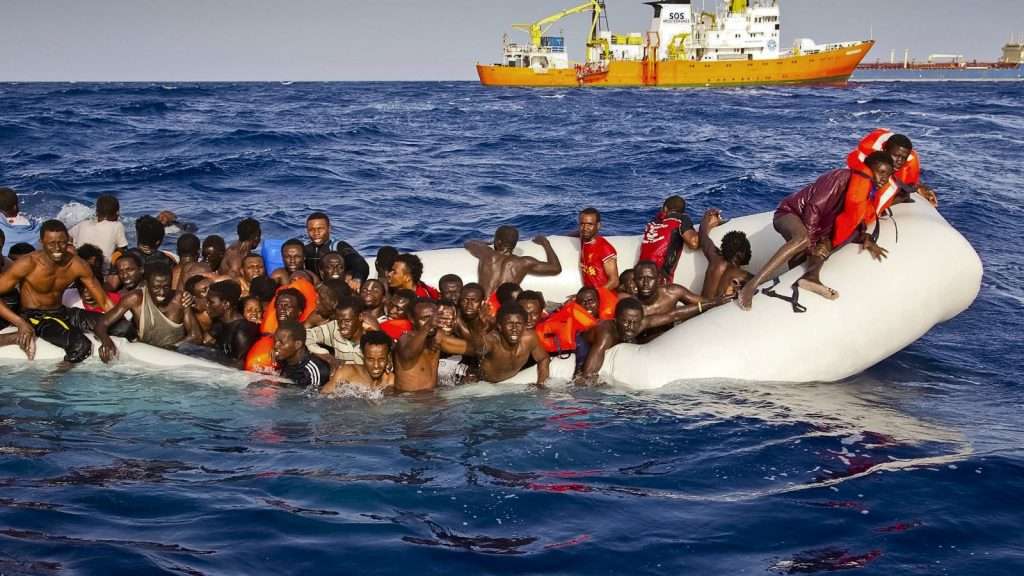Libya: only a third of migrants survive deflated dinghy

Survivors from a deflated dinghy in the central Mediterranean revealed that 60 migrants died during their voyage, according to The Associated Press.
The remaining 25 survivors were spotted by humanitarian relief group, SOS Mediterranee on 13th March.
SOS Mediterranee spokesperson, Francesco Creazzo said that the survivors were from Senegal, Mali and Gambia, and all 25 are male, including 12 young boys.
Two men were unconscious upon the arrival of the Ocean Viking ship and the other 23 were in critical condition, suffering from exhaustion, dehydration, and fuel burns.
READ: Italy impounds charity ship over Libya migrant row
Fuel burns occur when gasoline mixed with seawater comes into contact with human skin.
Dr Sarah Giles from Medics Sans Frontières revealed “At times, just touching their fuel-soaked clothing has been enough to make my latex medical gloves melt – imagine that on your skin…”
Due to the severely traumatic experience, the survivors could not provide SOS Mediterranee with plenteous accounts, said Mr Creazzo. Humanitarian organisations rely on survivors’ stories to understand how many migrants have lost their lives or have gone missing at sea and are therefore presumed dead.
However, it was confirmed that the dinghy left Zawiya, Libya, with 75 people aboard, including women and at least one infant.
The voyages’ success was short-lived as the dinghy’s engine broke off soon after their departure, and the inflatable boat was caught adrift.
Reuters reported that almost 2,500 migrants disappeared last year as they attempted to cross one of the world’s deadliest migration routes, the Central Mediterranean. It is estimated that 226 migrants died at sea since the beginning of 2024.
Desperate to halt immigrant landings in Europe, the UK pledged $1.2 million to Libya to “tackle the root causes of illegal migration” and prevent migration attempts.
Similarly, in Tunisia, the EU granted President Kais Saied $150 million to aid Tunisia’s economic crisis, hoping that the donation would help curb illegal migration attempts.
The EU’s approach has been criticised by Human rights groups as they suggest that the EU funding hinders the poor treatment of Tunisia’s migrants rather than helping the enforcement of their human rights.
AP/Reuters/MSF











